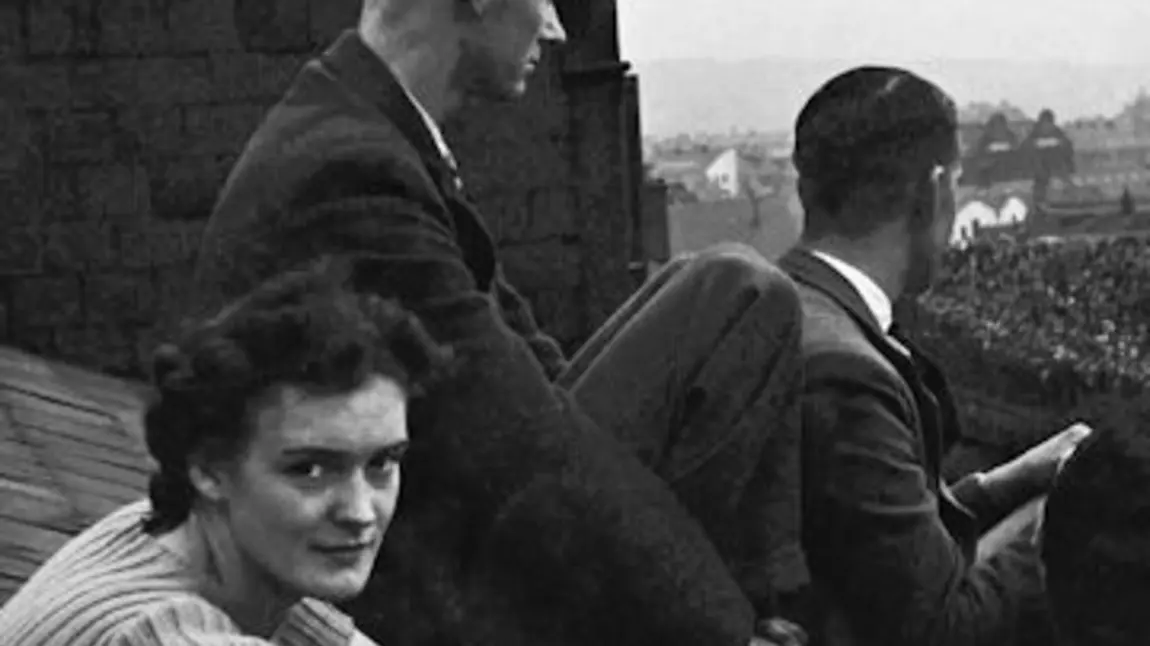Sliding back in time with the Amber Collection

Securing a remarkable documentary film and photography collection, the three year programme of work includes:
- the capital redevelopment of Side Gallery on Newcastle’s Quayside, delivering full access, increased and enhanced exhibition spaces; a study centre with digital access to the collection and a library; improved work, exhibition development and conservation facilities
- a major exhibition at Newcastle’s Laing Art Gallery opening in June 2015, while Side Gallery is closed, exploring the rich narrative of the collection
- a programme of volunteer involvement that will help to digitise over 7,000 images, 2,000 minutes of film and video as well as audio tapes and documents
- the redesign and rebuild of Amber-Online, delivering access to the digitised collection and the rich network of connections between the different films and photographic bodies of work
- 18 projects working with the collection and the possibilities of documentary with primary schools, secondary schools, colleges, community groups and individuals - particularly in the communities whose histories have been captured in Amber / Side Gallery’s documentary works
Founded by the filmmaker Murray Martin, the Amber collective came to the North East in 1969 ‘to collect documents of working class culture’. The collection accelerated after it opened Side Gallery in 1977. In 2011, the interlinked narrative of Amber’s films and the photography of collective member Sirkka-Liisa Konttinen was inscribed in UNESCO’s Memory of the World UK register. An influential voice in British documentary photography, it was a key player in the Film Workshop movement of the 80s and early 90s.
Collective member Graeme Rigby, said: “This is a hugely important award for us. Amber has created a living archive over the past 45 years. This gives us the opportunity to work with the collection and let people know just how beautiful and extraordinary it is. And it sets us up for the next 45 years!”
Ivor Crowther, Head of the Heritage Lottery Fund North East, said: “Documenting the lives of working class and marginalised communities in the North East over the last 40 years, the AmberSide collection is of significant local, national and international importance. HLF’s grant will not only conserve the historic building where the collection is housed, it will also drastically improve access and, by digitising the majority of items, create even more opportunities for people everywhere to learn about key moments in our history, including the decline of industry along the Tyne in the 70s, the redevelopment of Newcastle in Byker and images of Durham’s mining communities.”
Notes to editors
About the AmberSlide Collection
Writer Lee Hall (Billy Elliot, The Pitman Painters) on The AmberSide Collection: "It’s such a serious and important endeavour, but it’s done with such delight and celebration and care. It’s exemplary."
In 1968, filmmaker Murray Martin gathered the early collective from film and photography students at Regents Street Polytechnic in London around his vision of collecting ‘documents of working class culture.’ The group moved to North East England the following year. Over the years, the vision broadened to include marginalized communities. In 2014 founder member Sirkka-Liisa Konttinen was honoured with a Newcastle Quayside bronze plaque – specifically it commemorates her work in Byker, although in the late 70s the group mounted a successful campaign to preserve the Quayside’s architectural heritage (an exhibition by Sirkka and fellow collective photographer Graham Smith, a film and a clandestine action committee with a contact in the Department of Environment…). In 2011 the interlinked narrative of her documentary photography and 22 of Amber’s films was inscribed in UNESCO’s Memory of the World UK register.
In 1977 Amber opened Side Gallery in 1977, dedicated to celebrating the best in humanist documentary photography. The group produces, commissions, supports, collects, exhibits and screens films and photographic narratives, continuing to develop its unique film and photography collection. It is without question one of the most significant bodies of cultural work to have emerged from the North East over the past 50 years.
The collection has over 20,000 photographs, 10,000 transparencies, 100 films and videos, hours of historically important research footage and much more. A richly idiosyncratic celebration of lives, landscapes and visual culture, it includes many of the major historical and contemporary works which have influenced it and is rooted in a constantly evolving set of creative relationships with NE communities. 45 years on it has become one of the world’s great, multi-artist documentary projects – and it has been sustained far longer than any other. There is nothing else like it.
With 400 significant, individual narratives and a complex network of connections between each of them, the AmberSide Collection is best understood as a single, on-going artwork.
FILMS
The group gathered around the student film Maybe (1969), documenting the Shields Ferry on the River Tyne. Launch (1973), documenting the huge tanker World Unicorn as it is built and launched at the end of a Wallsend street, is widely celebrated. Byker (1983), growing out of Sirkka-Liisa Konttinen’s seminal documentation of the Newcastle working class community was the first of a number of photofilms, including The Writing in the Sand (1991), constructed almost entirely out of still images. Seacoal (1985) which won the European Film Prize was its first feature drama. Others have included the experimental documentary thriller T Dan Smith (1987), In Fading Light (1989) for which the group bought and ran its own 63’ fishing boat and the Coalfield Trilogy, The Scar (1997), Like Father (2001) and Shooting Magpies (2005).
Further information
AmberSlide Collection: Graeme Rigby on 0191 232 2000 / 07950 715 015, email: graeme.rigby@amber-online.com.
HLF press office: Laura Bates on 020 7591 6027, email: lbates@hlf.org.uk.